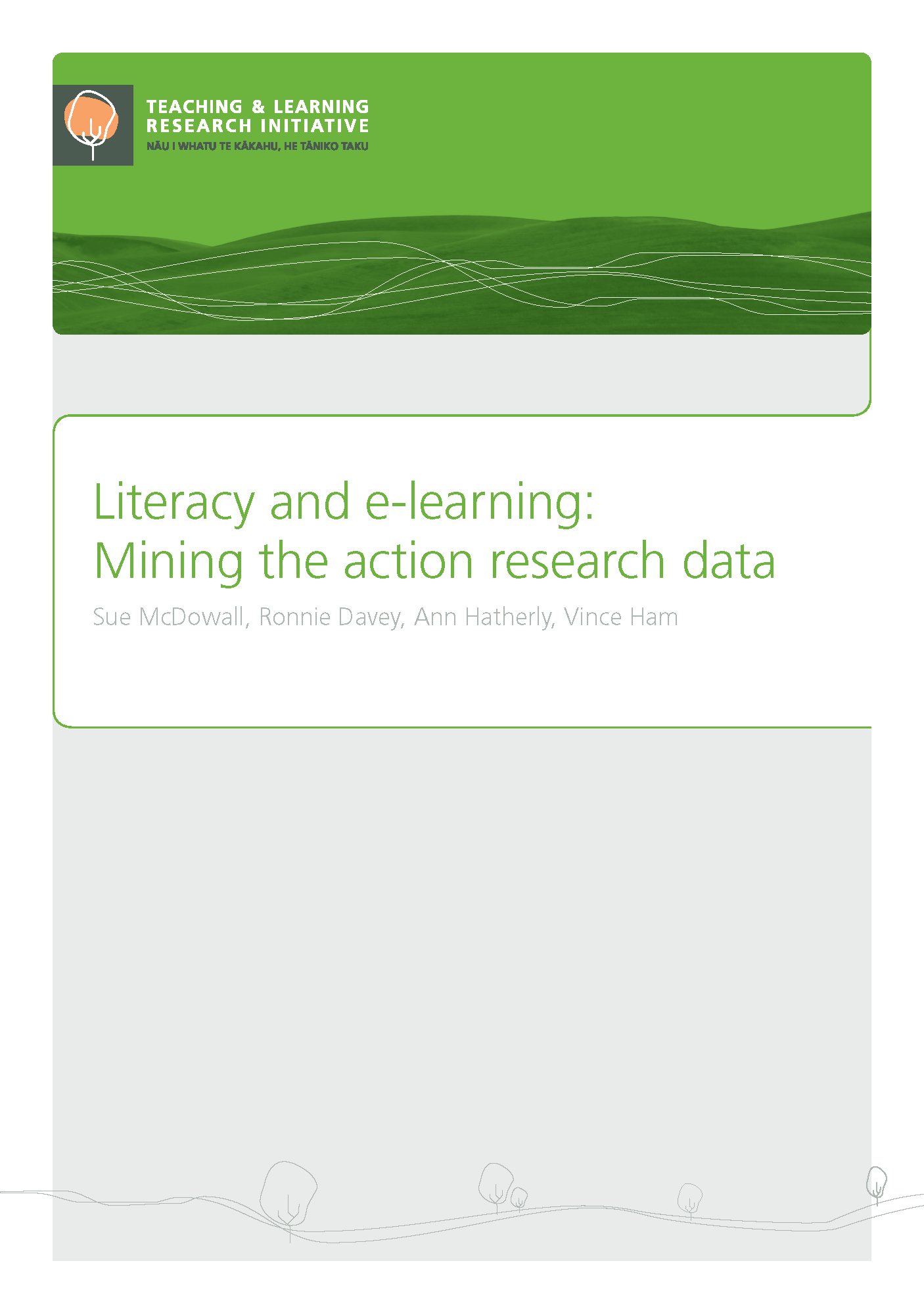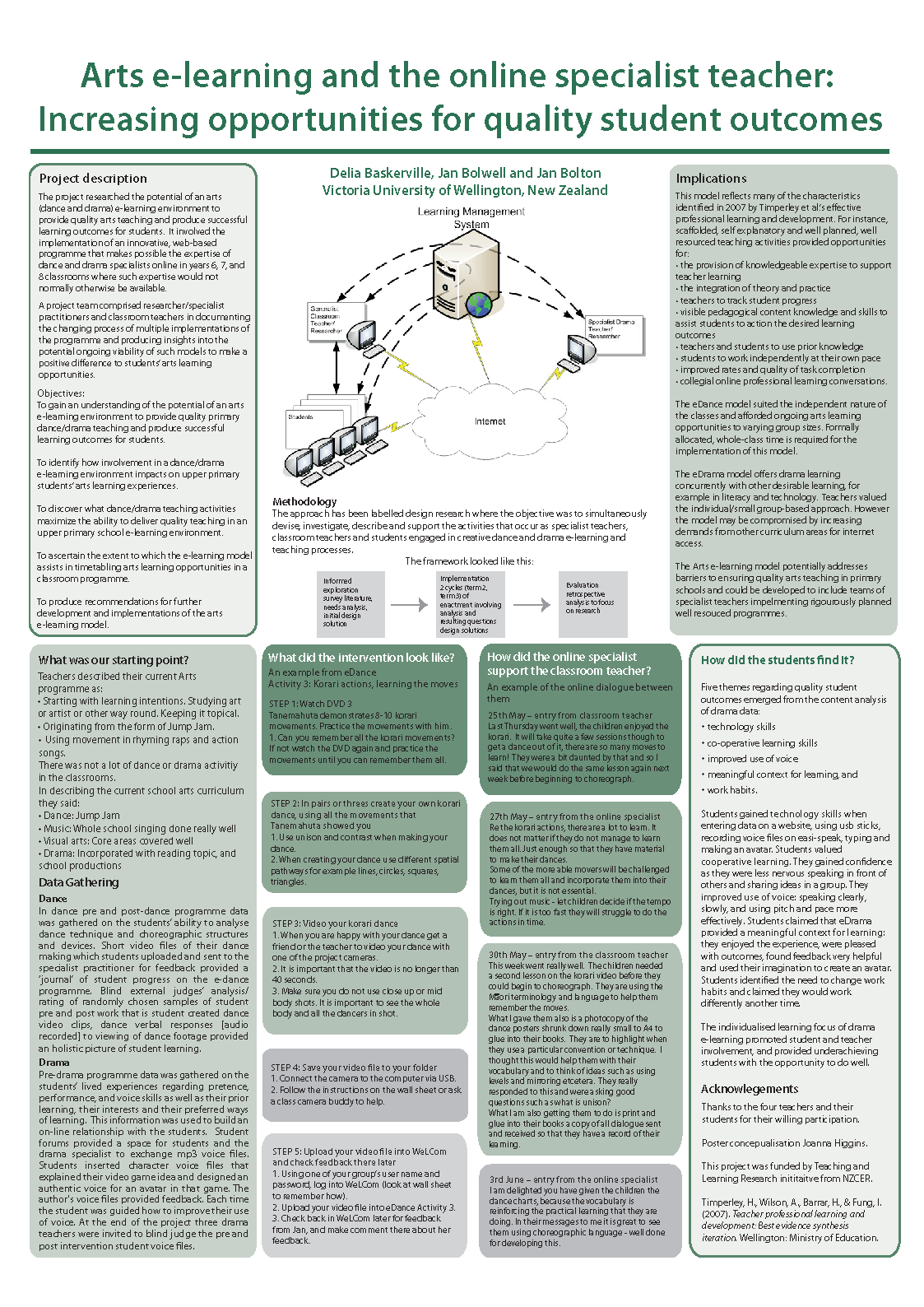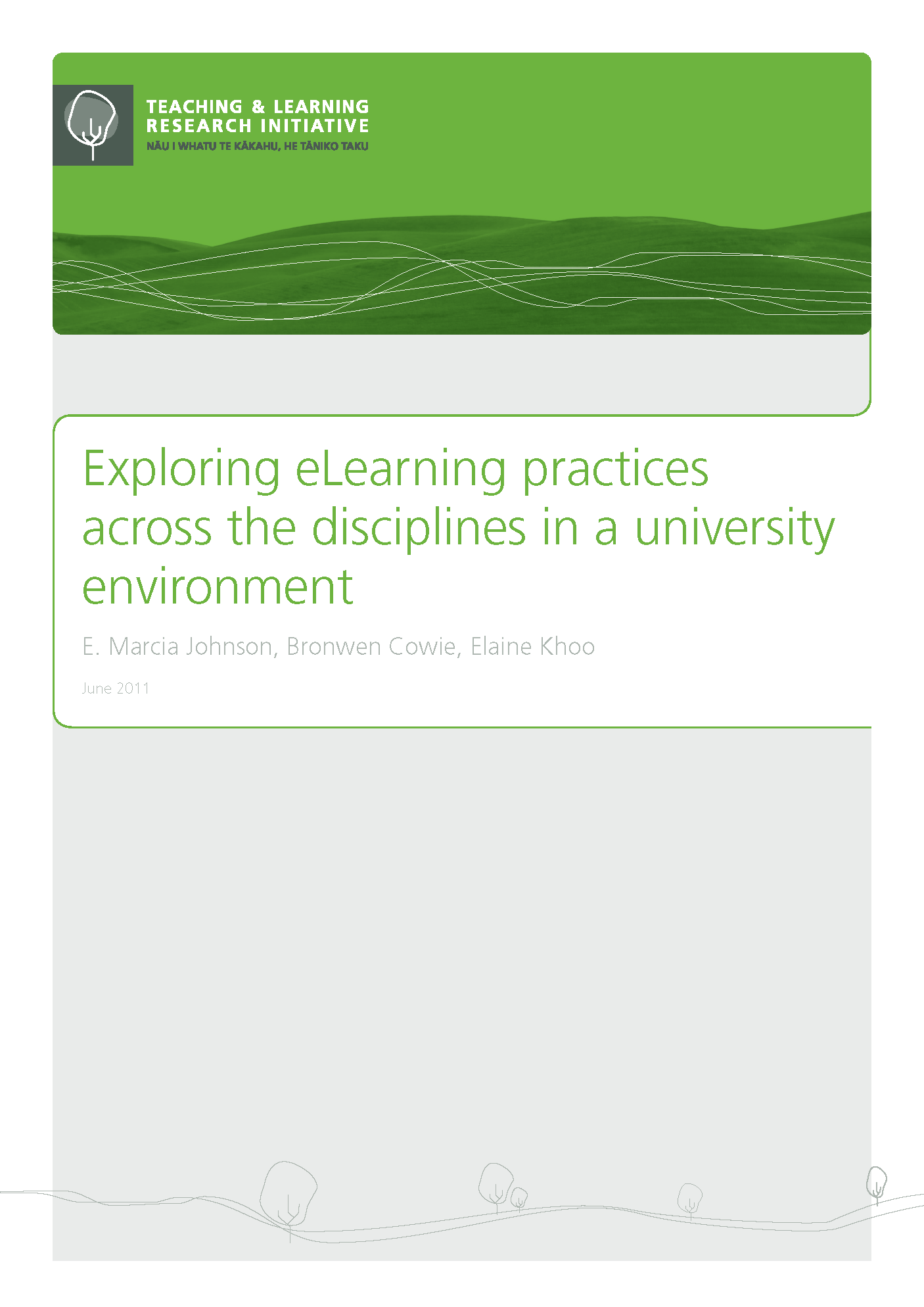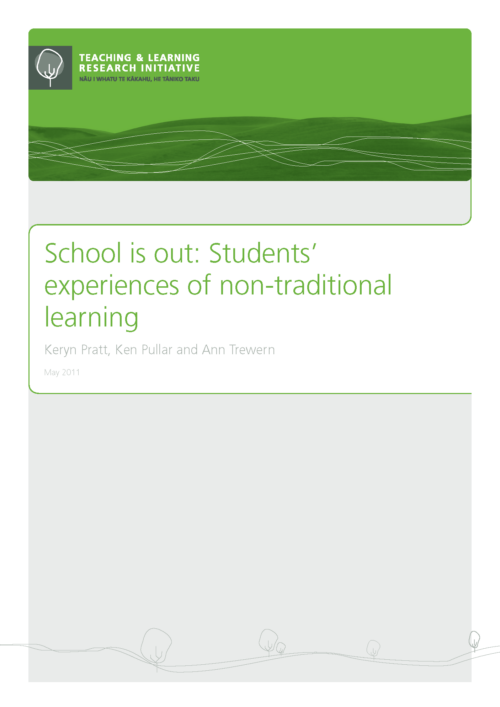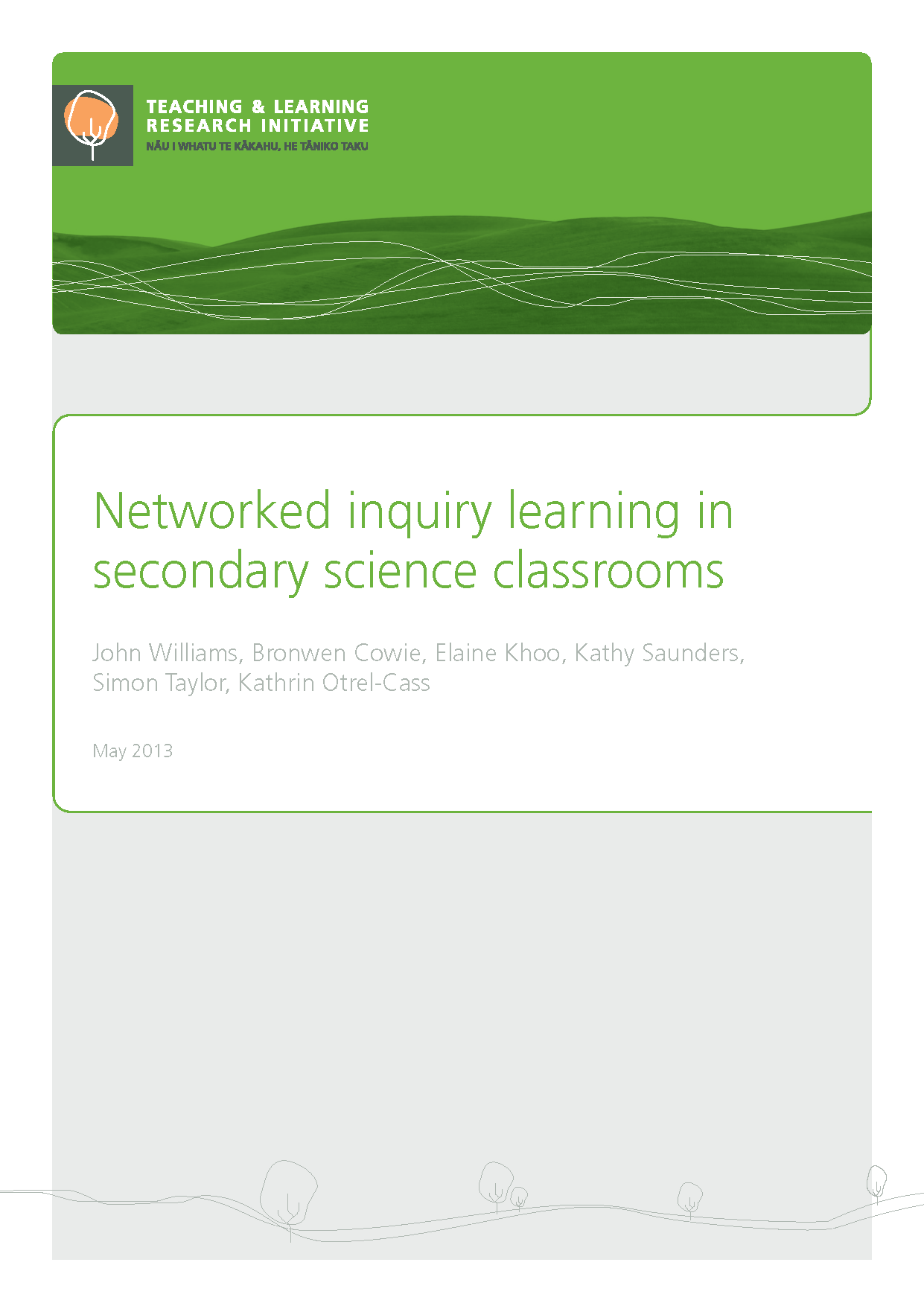
Networked inquiry learning in secondary science classrooms
Introduction This research project aimed to understand and explore the ways electronically networked (e-networked) tools can support authentic science inquiry in junior secondary classrooms in order to address concerns about student engagement in science. Internationally claims are made about the potential for inquiry-based learning to address the challenges of relevance for the 21st century school science learner (Aikenhead, 2005; Bolstad & Hipkins, 2008). Deliberate inclusion of activities such as collaboration, co-construction and confirmation of ideas is appropriate and valued in science inquiry but they tend to contrast with many of the practices found in conventional classrooms. These activities require more student freedom and the capacity to pose and meaningfully pursue questions

